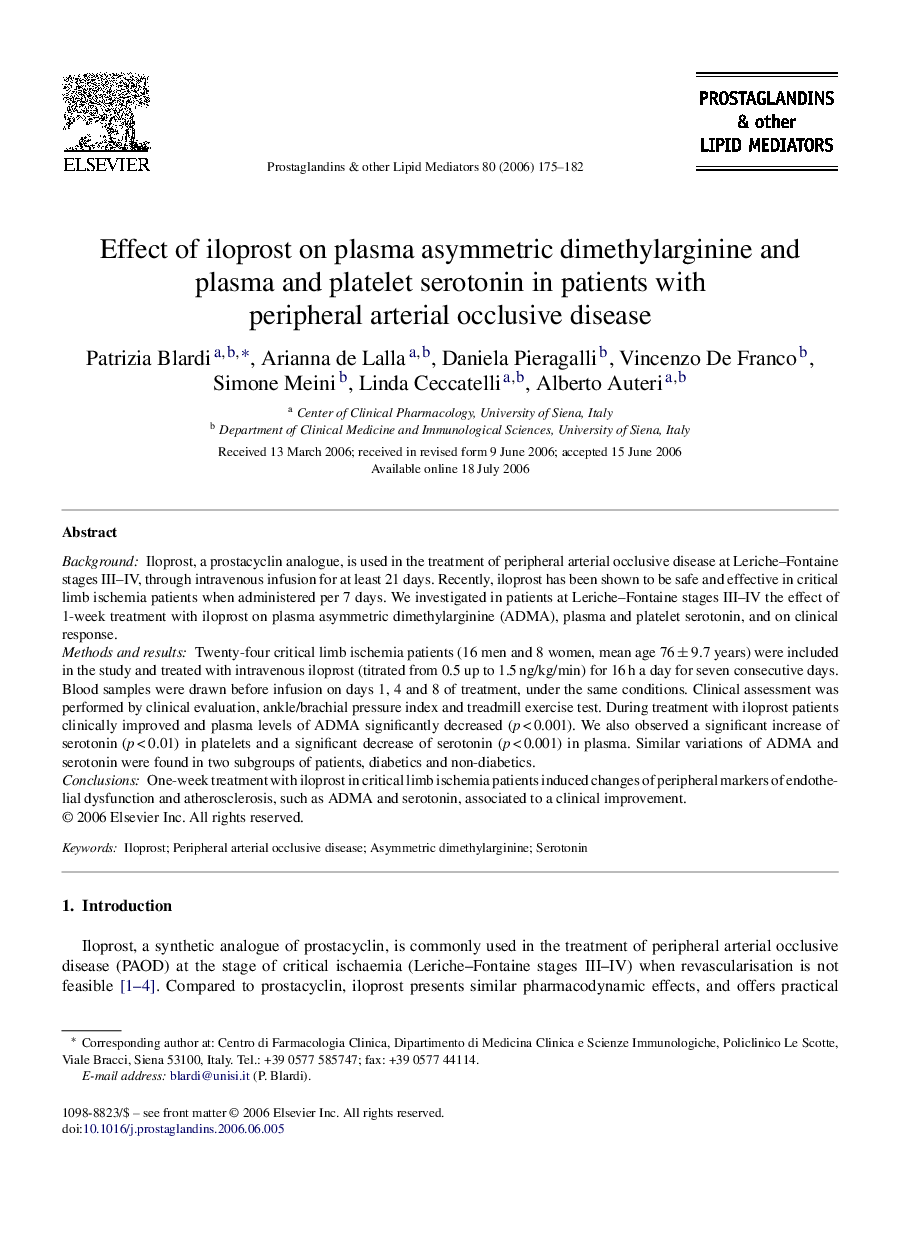| Article ID | Journal | Published Year | Pages | File Type |
|---|---|---|---|---|
| 2020126 | Prostaglandins & Other Lipid Mediators | 2006 | 8 Pages |
BackgroundIloprost, a prostacyclin analogue, is used in the treatment of peripheral arterial occlusive disease at Leriche–Fontaine stages III–IV, through intravenous infusion for at least 21 days. Recently, iloprost has been shown to be safe and effective in critical limb ischemia patients when administered per 7 days. We investigated in patients at Leriche–Fontaine stages III–IV the effect of 1-week treatment with iloprost on plasma asymmetric dimethylarginine (ADMA), plasma and platelet serotonin, and on clinical response.Methods and resultsTwenty-four critical limb ischemia patients (16 men and 8 women, mean age 76 ± 9.7 years) were included in the study and treated with intravenous iloprost (titrated from 0.5 up to 1.5 ng/kg/min) for 16 h a day for seven consecutive days. Blood samples were drawn before infusion on days 1, 4 and 8 of treatment, under the same conditions. Clinical assessment was performed by clinical evaluation, ankle/brachial pressure index and treadmill exercise test. During treatment with iloprost patients clinically improved and plasma levels of ADMA significantly decreased (p < 0.001). We also observed a significant increase of serotonin (p < 0.01) in platelets and a significant decrease of serotonin (p < 0.001) in plasma. Similar variations of ADMA and serotonin were found in two subgroups of patients, diabetics and non-diabetics.ConclusionsOne-week treatment with iloprost in critical limb ischemia patients induced changes of peripheral markers of endothelial dysfunction and atherosclerosis, such as ADMA and serotonin, associated to a clinical improvement.
